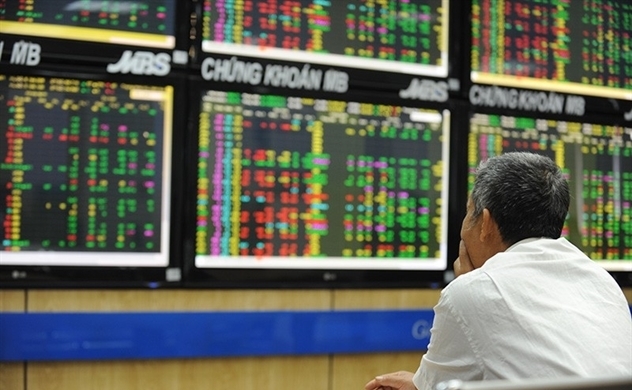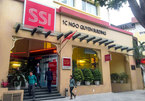According to SSI Research, the investment capital has been going in and out of ETF (exchange trade funds), but the influx proves to be higher than the outflow.

However, foreign investors are selling more than buying on all the three bourses (VND1.583 trillion in October and VND950 billion in mid-November). This is largely the restructuring of active investment funds, putting pressure on the market.
Also according to SSI Research, in November alone, foreign investors’ net sale reached over VND1 trillion on the HCM City bourse (HOSE). This was the fourth consecutive month that witnessed foreign investors selling more than buying.
Bluechips such as VNM of Vinamilk, VCB of Vietcombank and CTG of VietinBank topped the lists of shares that foreign investors sold more than bought.
What worries foreign investors?
| The Vietnamese stock market is very promising in the eyes of foreign investors. However, the barriers in liquidity and transaction fees have discouraged them. |
Bloomberg reported that foreign investors think Vietnam’s stocks are cheap, but they don’t have many opportunities to buy shares at this moment because of low liquidity.
Vietnam still sets a ceiling for foreign ownership ratio, and there is a low free float and high state ownership ratio in large corporations.
The trading volume in the Vietnamese stock market remains very small compared with other Southeast Asian countries.
It quoted Tim Love from GAM Investments as saying that the tight liquidity of some top stocks is partly the result of major overseas owners holding their stakes for the long term. The high cost and the worry that they cannot buy a big amounts of shares as expected discourage investors.
Ceiling on foreign ownership ratio
According to Bui Van Huy, Market Strategy Director of the HCM City Securities, the limitation on foreign ownership ratio aims to restrict the participation of foreign investors in a number of special businesses such as banking, insurance, finance, national resources exploitation industries and conditional business fields.
The common feature of the Law on Foreign Investment of Asian countries such as China, India and Thailand is that it divides business fields into three groups 1/fields that the government encourages investments investment in 2/fields that the government restricts investments and 3/fields the government prohibit investments.
Regarding liquidity, Huy said that to motivate cash flow to move faster, it is necessary to apply measures to shorten the transaction cycle. This will help money turnover, thus helping improve liquidity.
Dau Tu Chung Khoan quoted its sources as reporting that the VN-Index is below a reasonable value. Therefore, the risk of a strong decrease is unlikely to happen, while the possibility of recovery is high.
Kim Chi

Stock investors turn more cautious after taking loss
The stock market these days is beset with anxiety and cautiousness. Investors cannot predict how the stock prices while foreign investors sell more than buy.

VN stocks to head up in December, trade war concerns expected
After having declined for four straight weeks, the Vietnamese market may rebound in December as analysts and securities companies expect that cheaper shares will attract hungry investors amid the world’s volatility.
 The Vietnamese stock market is very promising in the eyes of foreign investors. However, the barriers in liquidity and transaction fees have discouraged them.
The Vietnamese stock market is very promising in the eyes of foreign investors. However, the barriers in liquidity and transaction fees have discouraged them.